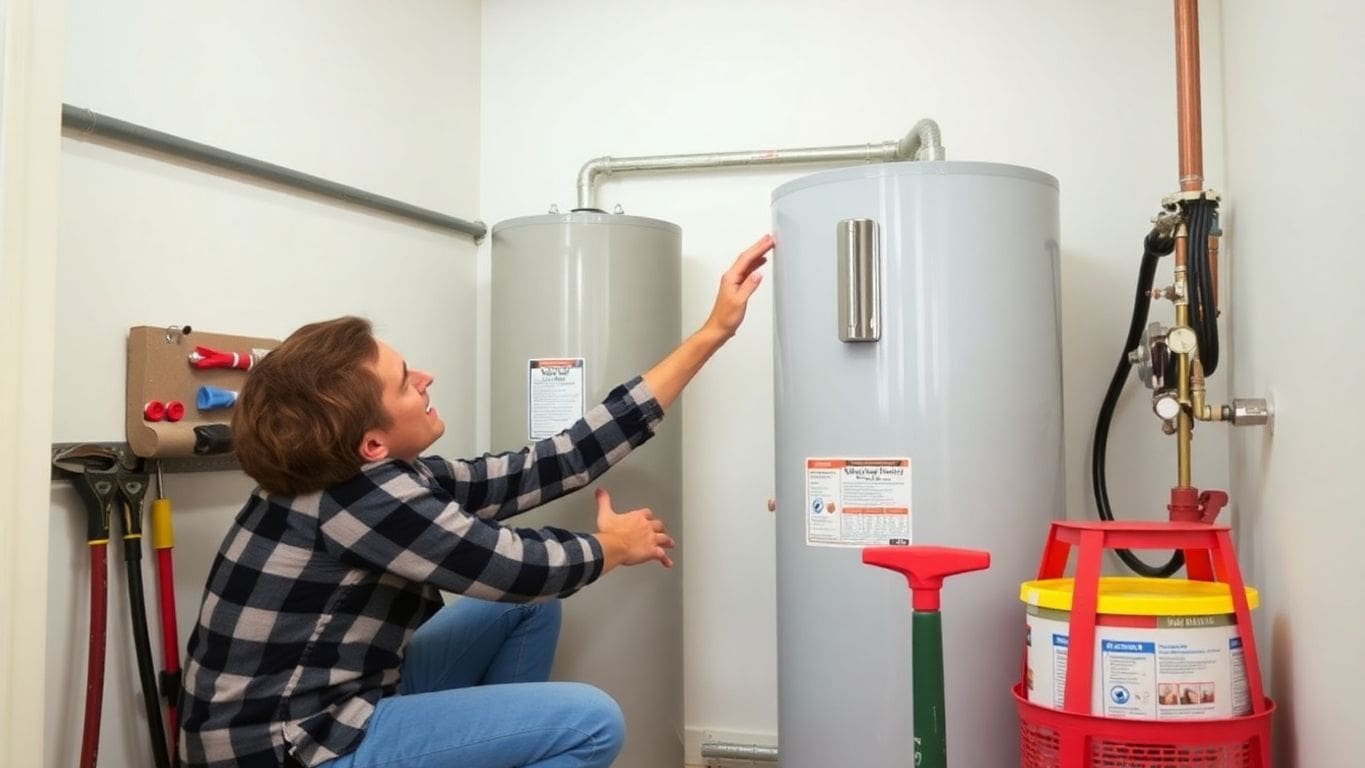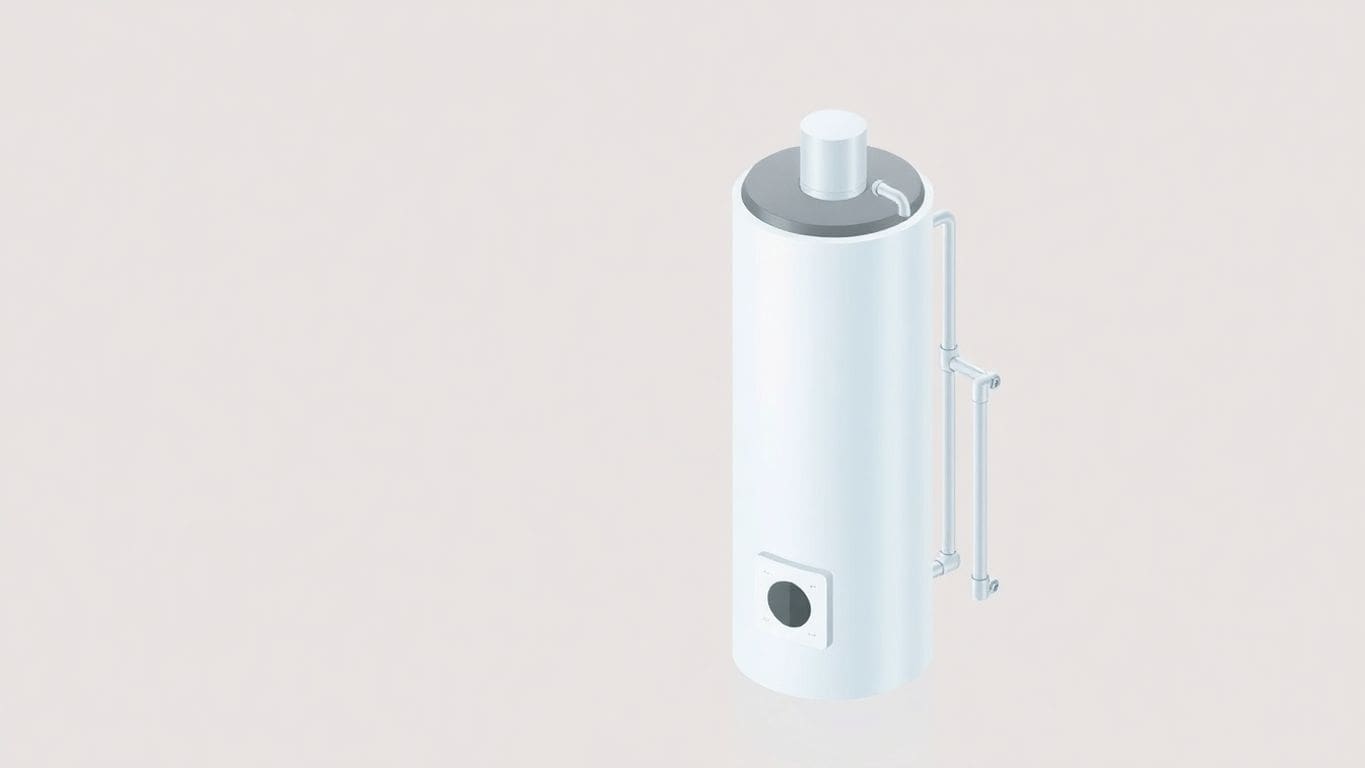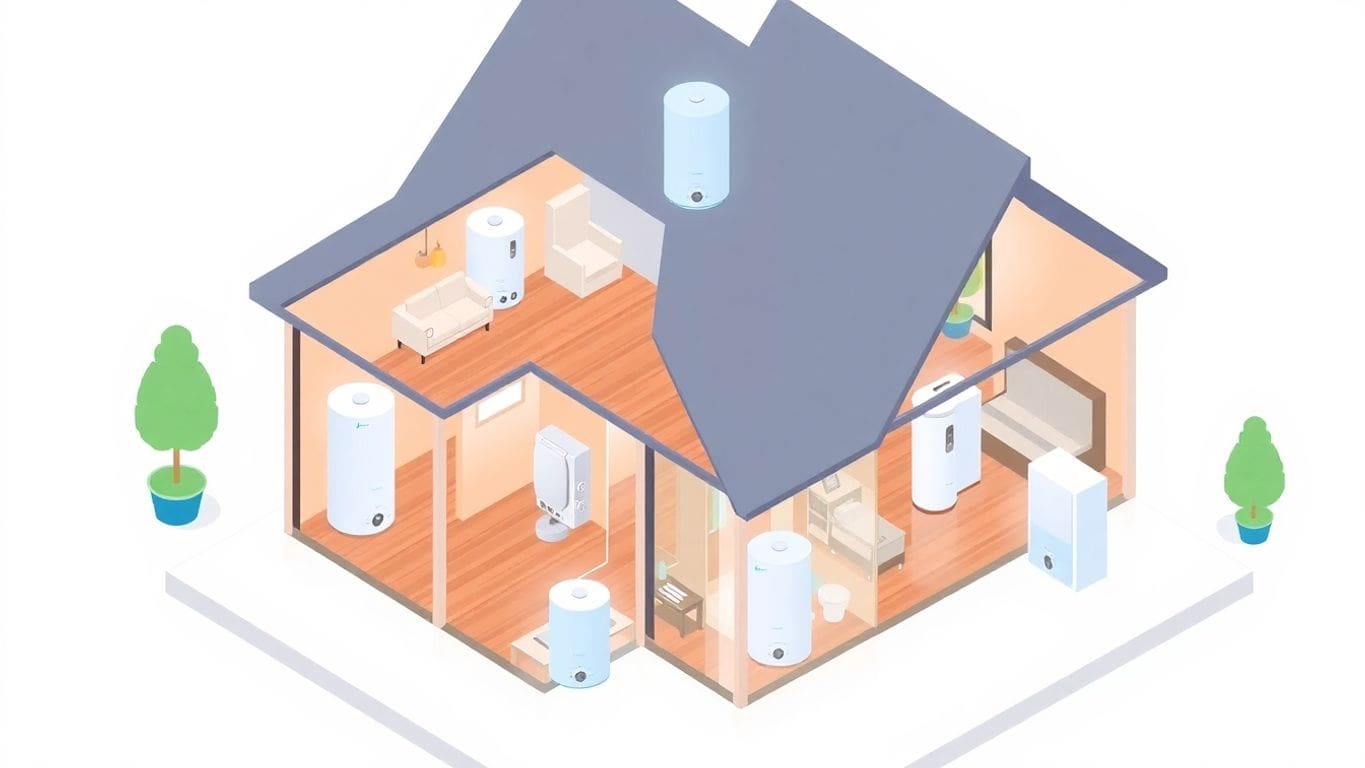
Hot water heaters are essential in our homes, providing comfort and convenience. But when they malfunction, knowing who can repair hot water heaters becomes crucial. Whether it’s a small leak or a complete breakdown, finding the right professional can save you time, money, and a lot of stress. This article will guide you through the types of hot water heaters, common issues, and how to find the right repair service for your needs.
Hot water heaters can have problems. Sometimes, they leak. Other times, the water isn’t hot enough. You might hear strange noises coming from the tank. These are all signs that something is wrong. Sediment buildup is a frequent issue. Sediment can make your water heater less efficient and even cause damage. Thermostat problems can also cause issues with water temperature. And sometimes, parts just wear out over time and need to be replaced.
It’s not always easy to know when you need a pro. If you see water leaking from your water heater, that’s a big sign. Other signs include:
If you notice any of these things, it’s best to call a professional. Trying to fix it yourself could be dangerous, especially if you don’t know what you’re doing.
Sometimes, fixing your water heater isn’t the best option. If your water heater is old, it might be better to replace it. Most water heaters last about 10-15 years. If yours is getting close to that age, think about getting a new one. Also, if you’ve had to repair it a lot, it might be time for a replacement. A new water heater will be more efficient and save you money in the long run. Plus, you won’t have to worry about it breaking down all the time.
It’s good to know what kind of hot water heater you have. This can help you understand how it works and what might go wrong. There are a few main types to consider.
Tank water heaters are the most common. They heat up water and store it in a tank, ready for you to use. When you use hot water, the tank refills and heats more water. Tankless water heaters, on the other hand, heat water only when you need it. This means you don’t have a tank of hot water sitting around.
Tankless heaters are great if you have limited space or want to save energy. However, they can be more expensive to install.
Water heaters use either electricity or gas to heat water. Electric heaters use heating elements inside the tank to warm the water. Gas heaters burn gas to heat the water.
Solar water heaters use the sun to heat water. They have solar collectors, usually on your roof, that absorb sunlight. This heat is then used to warm the water. Solar water heaters also usually have a backup system, like an electric or gas heater, for when the sun isn’t shining. Solar water heaters are a great way to save energy and reduce your carbon footprint. They can be expensive to install, but they can save you money in the long run.
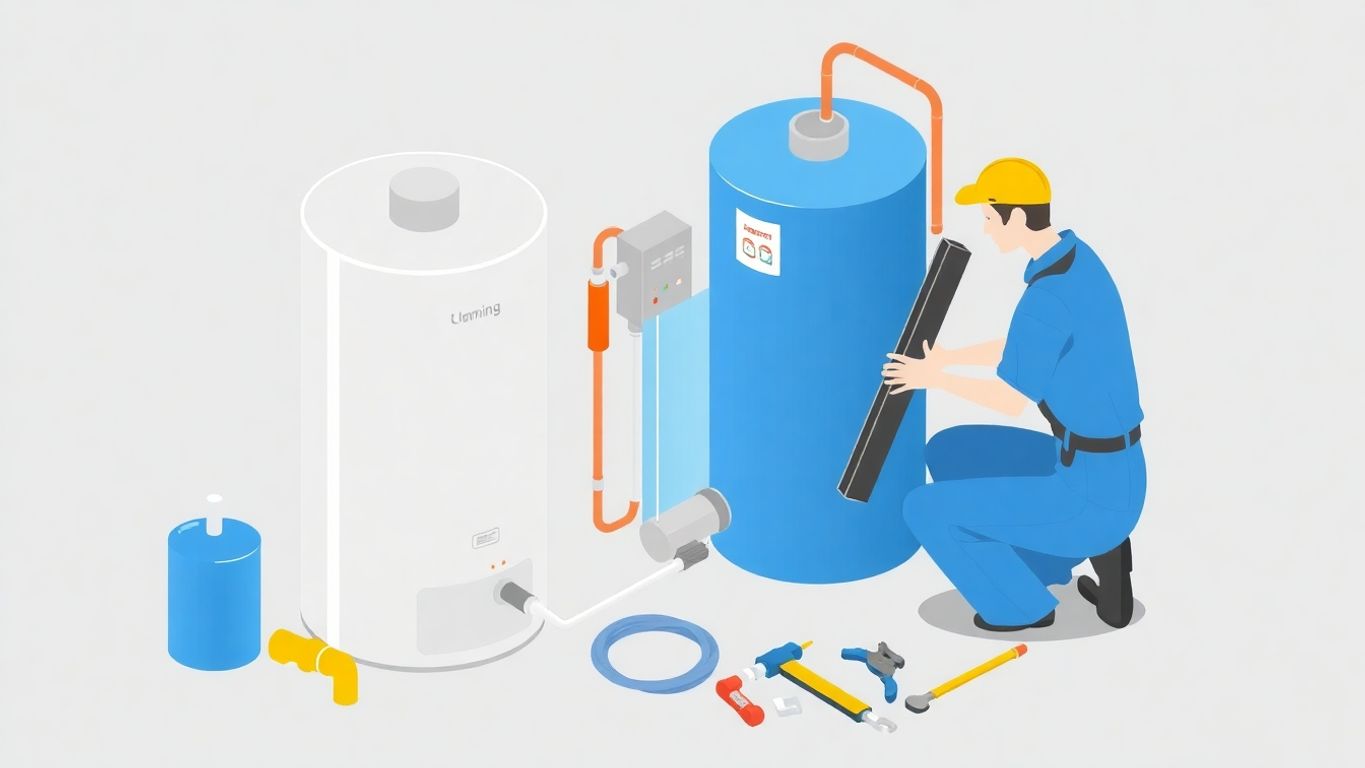
So, your hot water heater is acting up. Now you’re probably wondering who you should call to fix it. Don’t worry, there are a few different types of professionals who can help you out. Let’s look at some options.
Plumbers are a great choice for water heater repair. They know all about pipes and water systems. Most plumbers have experience with different types of water heaters, so they can usually diagnose and fix the problem quickly. They can handle everything from a small leak to a complete replacement. Plus, they know the local codes and will make sure the job is done right. Plumbers are often your best bet for general water heater issues.
HVAC (Heating, Ventilation, and Air Conditioning) technicians also work with water heaters, especially if it’s part of your home’s overall heating system. They are experts in heating and cooling systems, so they understand how water heaters fit into the bigger picture. If you have a more complex system, like a heat pump water heater, an HVAC tech might be a good choice. They can handle the electrical and mechanical parts of the heater.
Some companies only work on water heaters. These specialized services can be really good if you have a tricky problem or a specific type of water heater. They often have a lot of experience with different brands and models. They can quickly figure out what’s wrong and get it fixed. These services might be a bit more expensive, but their focused knowledge can be worth it.
It’s important to find someone who knows what they’re doing when it comes to fixing your hot water heater. You want to make sure they’re qualified and can do the job right. Here’s how to find the best person for the job.
Before you hire anyone, check their credentials and licenses. Most states require plumbers and HVAC technicians to be licensed. This means they’ve passed tests and have the training needed to work on your water heater safely. You can usually check licenses online through your state’s licensing board. Don’t be afraid to ask for proof of insurance too. This protects you if something goes wrong during the repair.
Customer reviews can tell you a lot about a professional’s work. Look for reviews on sites like Yelp, Google, or the Better Business Bureau. See what other people say about their experience. Do they show up on time? Do they do good work? Are they easy to talk to? A few bad reviews aren’t always a deal-breaker, but lots of them might be a red flag. Positive reviews are a good sign that you’re dealing with a reliable person. Reading reviews can help you find the best water heater repair services.
Ask your friends, family, or neighbors if they know anyone good. Personal recommendations are often the best way to find someone trustworthy. If someone you know had a good experience with a plumber or HVAC tech, they’re more likely to do a good job for you too. Plus, you can ask your friend about the price and what to expect. It’s always good to get a referral from someone you trust. Word of mouth is a powerful tool for finding reliable hot water heater maintenance professionals.
Finding the right professional can seem hard, but it’s worth the effort. Take your time, do your research, and don’t be afraid to ask questions. A little bit of work upfront can save you a lot of headaches later on.
It’s important to think about how much fixing your water heater will cost. Knowing the average prices and what affects them can help you decide if fixing it is the best choice.
The cost to fix a water heater can change a lot. It depends on what’s wrong and the type of heater you have. Small fixes, like changing a part, might cost less. Bigger problems, like fixing a leak, will cost more. Here’s a general idea:
These are just averages. Always get a quote from a licensed plumber before you start any work.
Several things can change how much you pay to fix your water heater:
Sometimes, fixing your water heater isn’t the best choice. If your heater is old or the repair is very expensive, think about getting a new one. Here are some things to consider:
Getting a new water heater is a big decision. Think about the cost of the repair, the age of your heater, and how much energy a new one could save you. It might be worth it to spend more now to save money later. Also, consider the water heater installation costs.
Some water heater problems are easy to fix yourself. If you’re comfortable with basic tools and follow instructions carefully, you might save some money. Simple things like checking the power supply or resetting a tripped circuit breaker are good examples. Also, draining and flushing your water heater to remove sediment is something many homeowners can handle. Just be sure to turn off the power and water supply first! Always prioritize safety.
Even simple repairs can go wrong if you’re not careful. One big mistake is not turning off the power before working on electrical parts. This can be very dangerous. Another common error is not properly draining the tank before replacing parts. This can lead to leaks and water damage. Also, using the wrong parts or tools can cause more problems than you started with. Always double-check that you have the right equipment and know what you’re doing.
Hiring a professional plumber or HVAC technician has many benefits. They have the knowledge and experience to diagnose problems quickly and accurately. They also have the right tools and parts to do the job safely and correctly. Plus, a professional can often spot potential problems before they become major issues. While it costs more upfront, hiring a pro can save you time, money, and stress in the long run.
When it comes to water heater repairs, it’s important to be honest about your skills and comfort level. If you’re not sure about something, it’s always best to call a professional. Your safety and the proper functioning of your water heater are worth it.
Sometimes, your hot water heater breaks down at the worst time. Like, when you’re about to take a shower before work, or in the middle of winter. That’s when you need emergency repair services. Let’s talk about what that means and how to find help fast.
Not every hot water heater problem is an emergency. But some definitely are! Here are a few signs you need help right away:
When you have a water heater emergency, you can’t wait until Monday morning. You need someone who can come out right away. Here’s how to find 24/7 services:
It’s a good idea to have a list of emergency contacts ready before something goes wrong. That way, you’re not scrambling to find someone in a panic.
Emergency repairs usually cost more than regular repairs. Here’s what to expect:
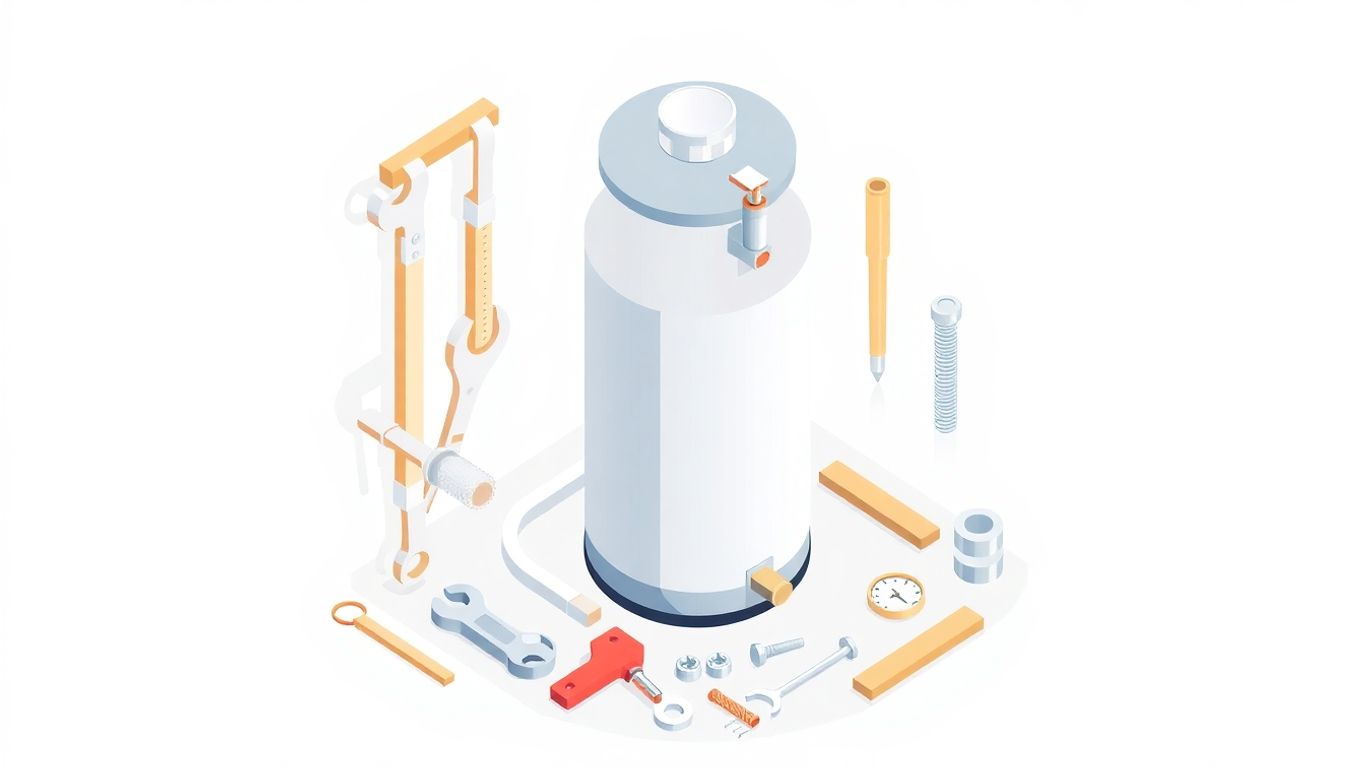
Taking care of your water heater can help it last longer and work better. Regular maintenance can save you money and trouble in the long run. Here’s how to keep your water heater in good shape.
Check your water heater regularly. Look for any signs of leaks, rust, or damage. It’s a good idea to have a professional inspect your water heater at least once a year. They can spot problems you might miss. Regular servicing can also improve the water heater’s lifespan.
Flushing your water heater removes sediment that builds up over time. Sediment can make your water heater less efficient and cause it to break down sooner. Here’s how to flush your water heater:
Flushing your water heater every six months to a year can really extend its life. It’s a simple task that can prevent a lot of problems.
Setting your water heater to the right temperature can save energy and prevent scalding. The recommended temperature is 120°F (49°C). Here’s why:
Adjusting the temperature is easy and can make a big difference. Check your water heater’s manual for instructions on how to change the temperature setting. Keeping your temperature at the right level is a simple way to keep your water heater running smoothly.
When you buy a new water heater, it usually comes with a warranty. A warranty is like a promise from the company that made the water heater. It says they will fix certain problems if they happen within a certain amount of time. Read your warranty carefully to know what it covers. Some warranties cover parts, while others cover labor. Some only last a year, while others last much longer. Keep your warranty paperwork in a safe place.
Service agreements are different from warranties. You usually pay extra for a service agreement. It’s like insurance for your water heater. It can cover repairs that your warranty doesn’t. Service agreements can be helpful if your water heater is old or if you want extra protection. But, make sure you understand what the agreement covers and how much it costs. Sometimes, the cost of the agreement is more than the cost of repairs.
If you’re thinking about getting a service plan, here’s what to look for:
It’s a good idea to compare different service plans before you choose one. Think about how old your water heater is and how likely it is to need repairs. If your water heater is new and has a good warranty, you might not need a service plan. But if it’s old, a service plan could save you money in the long run.
Also, consider the average repair costs in your area to help you decide if a service plan is worth it.
Some usual issues include leaks, strange noises, or not enough hot water.
If you see leaks, hear unusual sounds, or if the water isn’t heating up, it’s time to call a pro.
If your heater is over 10 years old, has frequent problems, or is not heating water at all, consider a replacement.
Licensed plumbers, HVAC technicians, and companies that specialize in water heaters can help with repairs.
Check their licenses, read reviews online, and ask friends for recommendations.
Repair costs can vary, but they usually range from $150 to $600 depending on the problem.
You can do simple tasks, but for major issues, it’s safer to hire a professional.
If you have a major leak or the heater is making loud noises, shut off the water and gas, then call for emergency help.

